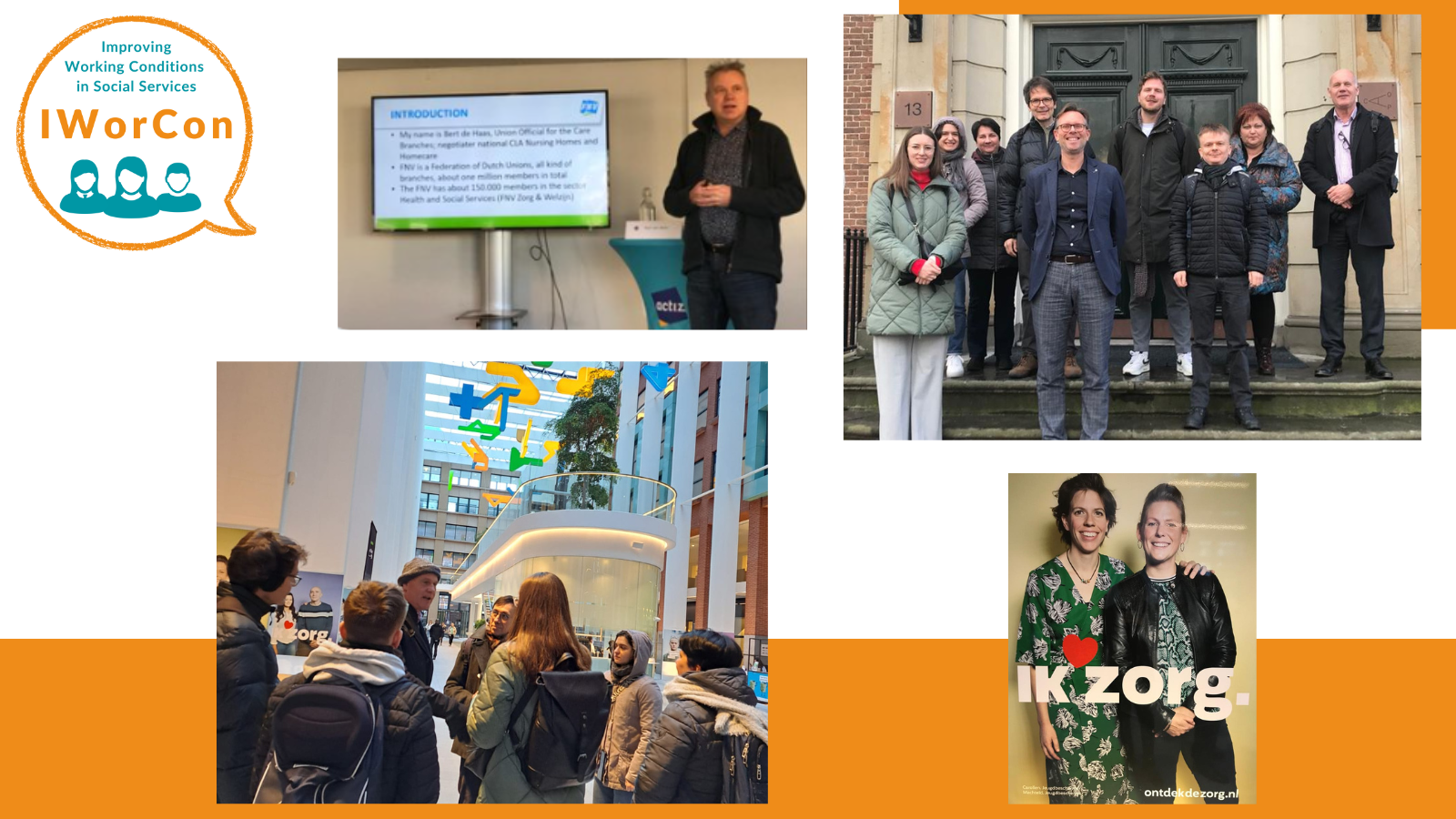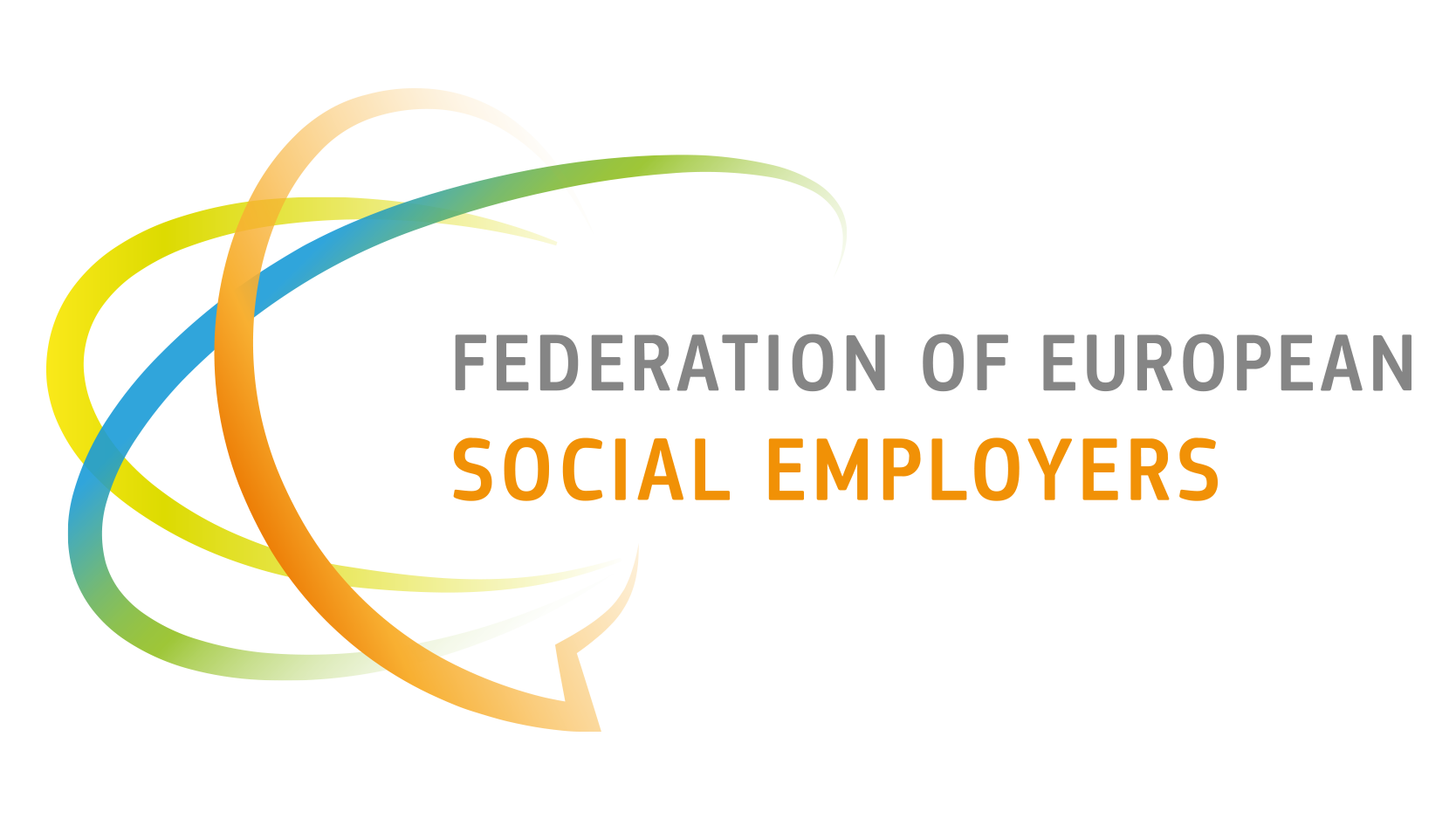Social services' labour market, employers' organisations and social dialogue in the Netherlands: IWorCon project Study Visit

From 17 to 19 January, a group of IWorCon project partners had the opportunity to visit the Netherlands for a study visit, hosted by the Dutch employers’ association ActiZ.
The 400 members of ActiZ provide care in nursing homes and residential care facilities, homecare, rehab care and youth care. Together, they employ close to 500,000 employees. ActiZ is a partner in the IWorCon project, as well as member of the Social Employers.
The visiting group was made up of employers’ organisations and providers in social services from Spain (Lares), Greece (The Net), Poland (WROZS), France (Nexem) and Romania (FONSS).
The visit began at ActiZ’s premises in Utrecht, with an in-depth insight into the functioning of the association. Partners learned about ActiZ’s membership and network, its financing, social dialogue practices and the sectors’ collective agreement, as well as social innovation, digitalisation, sustainability and communication.
In the Dutch long-term care sector, 140.000 out of 455.000 workers will retire in the next ten years and staff shortages are estimated to amount to 80.000 job positions by then. In terms of training policies, the challenge is to offer flexible and tailor-made programs facilitating career paths and skills development based on the labour market needs.
Partners had the opportunity to ask questions, discuss various aspects of the association and make comparisons with practices in their own countries.
The second day brought partners to the Hague on a tour to several important institutions in the social dialogue sphere: the Center for Public Sector Employers (CAOP), the VNO/MKB and the Social and Economic Council (SER).
The CAOP is a non-profit foundation focusing on public-funded sectors such as health and social care. CAOP provides research and advice on social challenges and labour market issues and supports social partners in a neutral way.
VNO/MKB is an employers’ federation that represents the interests of large (VNO) and small and medium-sized enterprises (MKB). VNO/MKB advocates, provides policy recommendations, and engages with the government. They influence economic policies and contribute to the overall economic development of the Netherlands.
The SER is the advisory body that serves as a platform for dialogue and collaboration between representatives of employers, employees, and the government. The main purpose of the SER is to provide advice on social and economic issues, foster consensus and promote cooperation.
An important element of the Dutch social partnership is the Dutch Polder model, a method of tri-partite consensus-based policymaking, formalised in the 1980s. Under the motto “cooperation despite differences”, employers, trade unions and the government work together to find the best possible solutions.
On the final day, visiting partners had the opportunity to exchange with a trade union official for health and social services of the Federation of Dutch Unions (FNV).
Partners also brainstormed in a focus group on the topic of “membership and networking”.
Further IWorCon study visits will be held in Belgium, France, Spain, Austria and the Czech Republic. Key takeaways of all visits will be turned into a guide on “How to create and manage effective employers’ organisations in social services”.
For more information on IWorCon, visit:
